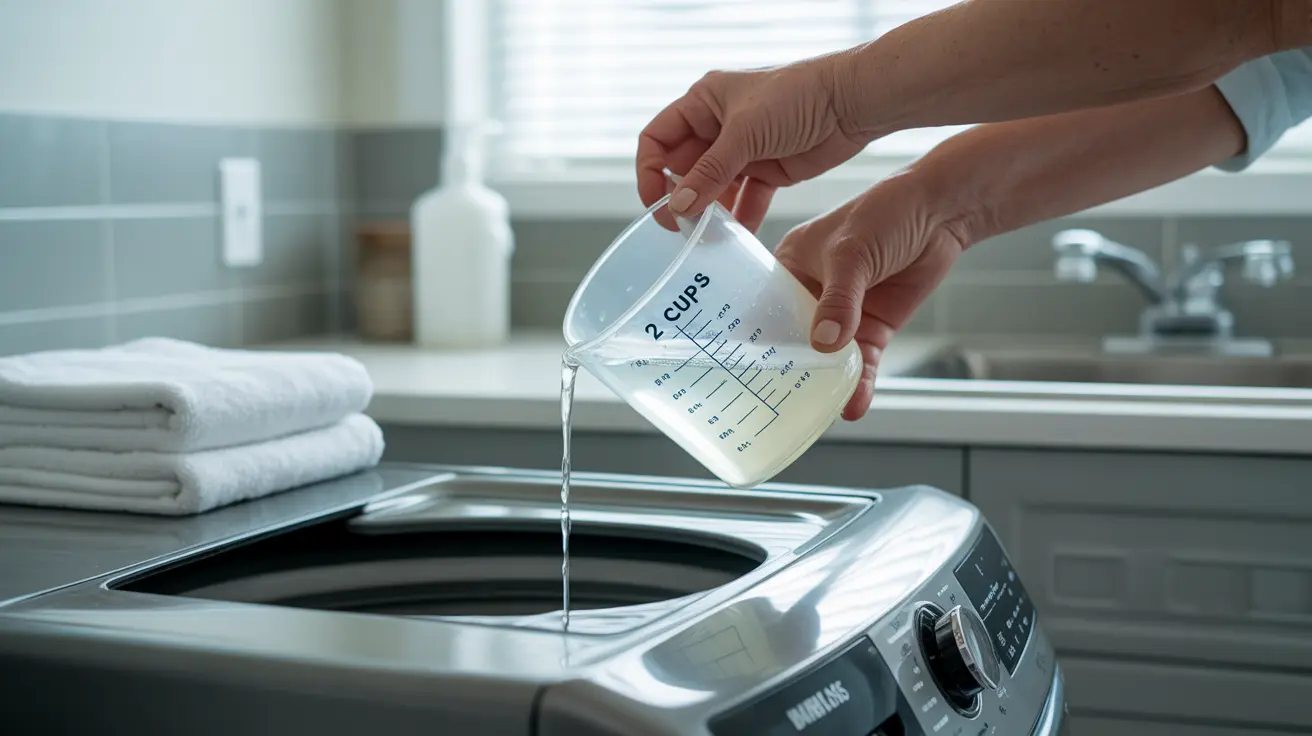If you're looking for a natural alternative to commercial fabric softeners, you might have heard about using vinegar in your laundry. This eco-friendly solution has gained popularity among households seeking gentler, chemical-free laundry care options. But does vinegar actually work to soften clothes? Let's explore the science and practical applications of this common household item in your laundry routine.
How Vinegar Works as a Natural Fabric Softener
White vinegar contains acetic acid, which works differently from traditional fabric softeners to achieve soft, fresh-feeling clothes. While commercial softeners coat fabrics with chemicals, vinegar breaks down mineral deposits and dissolves soap residue that can make clothes feel stiff and scratchy. This natural process helps restore fabric flexibility without leaving behind heavy chemical residues.
Benefits of Using Vinegar in Laundry
Using vinegar as a fabric softener offers several advantages over conventional products:
- Removes soap residue and mineral buildup
- Helps maintain fabric integrity
- Cost-effective alternative to commercial softeners
- Environmentally friendly option
- Naturally freshens clothes without artificial fragrances
- Helps prevent static cling
Proper Usage Guidelines
Correct Amount and Timing
To effectively soften clothes with vinegar, add 1/2 to 1 cup of white vinegar to your washing machine during the rinse cycle. This timing ensures the vinegar can work effectively without being diluted by detergent. For high-efficiency machines, use the fabric softener compartment and reduce the amount to 1/4 cup.
Machine Types and Settings
Vinegar can be used safely in both standard and high-efficiency washing machines. However, always check your machine's manual for specific recommendations about using additives like vinegar. Some manufacturers may have specific guidelines or restrictions.
Fabric Compatibility and Precautions
While vinegar is generally safe for most fabrics, there are some important considerations:
- Suitable for: Cotton, linen, denim, and most synthetic fabrics
- Avoid using on: Silk, leather, or specialty athletic wear with moisture-wicking properties
- Test on a small, inconspicuous area first
- Never mix vinegar with bleach or other cleaning products
Frequently Asked Questions
Does adding vinegar to laundry really soften clothes without leaving a smell? Yes, vinegar effectively softens clothes without leaving any vinegar smell behind. Once clothes are dried, the vinegar scent completely dissipates, leaving garments fresh and odor-free.
How does vinegar work to soften clothes compared to commercial fabric softeners? Vinegar softens clothes by dissolving mineral deposits and soap residue, while commercial softeners coat fabrics with chemicals. Vinegar's natural approach helps maintain fabric integrity without leaving behind artificial residues.
Can vinegar be safely used on all fabric types to soften clothes? While vinegar is safe for most fabrics, it should not be used on delicate materials like silk or leather. Always check care labels and test on a small area first before treating entire garments.
What is the best way to use vinegar in the washing machine to soften clothes? Add 1/2 to 1 cup of white vinegar during the rinse cycle, or use the fabric softener compartment in HE machines with 1/4 cup. Never mix vinegar with detergent in the same cycle.
Are there any risks or precautions when using vinegar as a fabric softener in laundry? The main precautions are to never mix vinegar with bleach (which creates toxic fumes), avoid using it on certain delicate fabrics, and check your washing machine manufacturer's guidelines regarding vinegar use.
By following these guidelines and understanding how vinegar works as a natural fabric softener, you can effectively incorporate this eco-friendly solution into your laundry routine. Not only will you save money, but you'll also be making a more environmentally conscious choice for your household.




